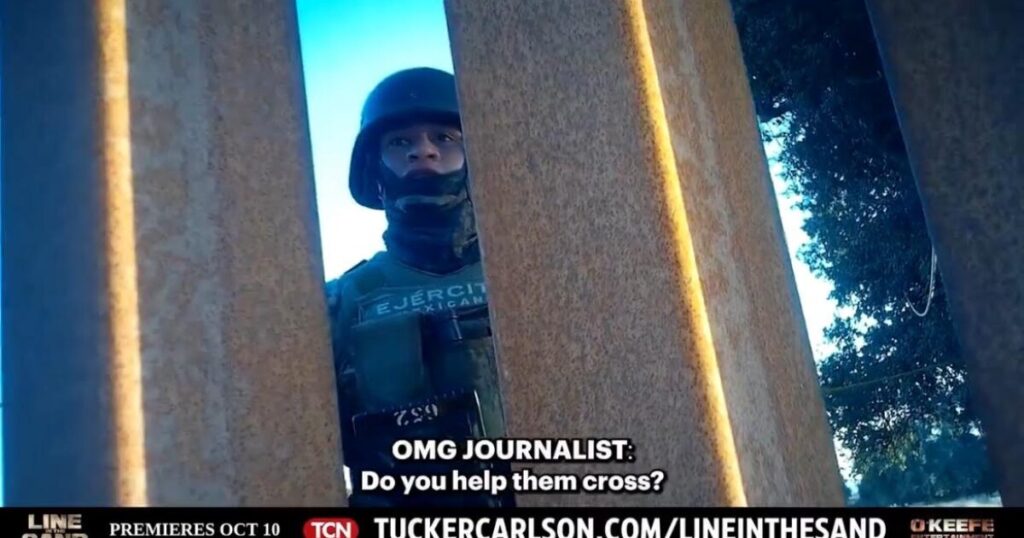The O’Keefe Media Group has made headlines recently for their undercover investigation revealing the Mexican military’s purported involvement in assisting illegal migrants to cross the U.S.-Mexico border. Footage captured by hidden cameras shows members of the Mexican Army, including a 20-year-old soldier named Jose Luis Anteno, engaged in activities that contradict official claims of their role in border enforcement. During an interview, Anteno stated, “We search and rescue people at the border… We make sure they don’t cross,” suggesting a focus on preventing illegal crossings. However, the released footage paints a different picture, documenting Army personnel allegedly helping migrants traverse the border, ultimately raising questions about the integrity of their operations.
James O’Keefe, the founder of the investigative group, has emphasized the discrepancies between what military personnel have claimed and what actually transpires on the ground. The O’Keefe Media Group’s observations counter the assertions made by Anteno, as the footage captured indicates activity that appears to support the very crossings that Anteno claimed they were working to prevent. This contradiction has led to significant public interest and scrutiny over the military’s true role at the border, further complicating the already contentious issue of migration in the region.
The implications of this revelation extend beyond mere anecdote; they tap into deeper narratives surrounding immigration, national security, and the capacity of international structures to manage migration flows effectively. As the investigation continues, it raises fundamental questions not only about the actions of the Mexican military but also about the motivations of migrants and the larger systems at play, including drug cartels, migration policies, and border enforcement agencies in both the United States and Mexico.
In tandem with this investigation, O’Keefe is gearing up to release a documentary titled “Line in the Sand,” which aims to expose the broader issues surrounding the so-called “migrant industrial complex.” This film promises to provide a stark depiction of various elements affecting the border crisis, including cartel involvement, migrant transportation routes like freight trains, and the status of child detention camps funded by U.S. entities. O’Keefe’s investigative work strives to offer a comprehensive understanding of the complex dynamics at play within global migration systems.
Through firsthand accounts and video evidence, “Line in the Sand” seeks to engage an audience on the urgent need for reform and to advocate for change in how migration is addressed regionally and internationally. By spotlighting these issues, O’Keefe aims to foster an informed dialogue on the factors driving migration and the responsibility of governments to protect vulnerable populations without compromising national security.
As the documentary’s premiere approaches, the controversies surrounding the Mexican military’s actions and the U.S.-Mexico border as a whole come into sharper focus. It serves as a reminder of the pressing necessity for organizations, lawmakers, and communities to grapple with the realities of migration, the murky waters of military involvement, and the ethical implications involved in managing border security while adhering to human rights standards. O’Keefe’s findings challenge prevailing narratives and invite a reevaluation of the approach taken by those in power to confront one of the most pressing social and political issues of our time.

